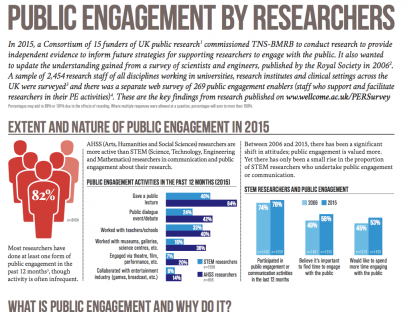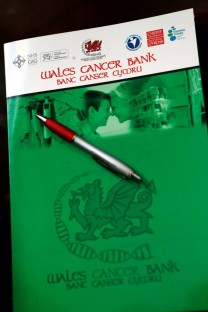“A man and his big freezer” is how medical professionals describe the biobank industry. With an increase in the number biobanks (a large collection of biological or medical data and tissue samples, amassed for research purposes) in existence freezing could be the future for medical advancements including cancer treatments – something our generation are still likely to be effected by throughout life.
Cancer biobanks exist across the globe and in Cardiff we are lucky to be home to the Wales Cancer Bank (WCB), who have given a glimpse into the work being done, how funding has been cut and how you can help.
Cancer biobanks aim to collect patient information in other words data from that god awful tumour which sets up camp in someone’s body. This data is collected from patients going through treatment but who want a positive change as a result – if only for their grandchildren’s generation.
Any data collected from these “heros” is available to researchers who are optimistically trying to establish a cure for all cancers whilst simultaneously improving current treatments. WCB acknowledge that they are only as good as the samples they receive and therefore need more public awareness for this kind of vital research to continue .
Historically WCB has been funded by the Welsh Government from National Institute for Social Care and Health Research (NISCHR) however today WCB is reliant on funding by Cancer Research Wales, Velindre Charitable funds, Velindre Source and Welsh Cancer Research Centre however funds dissipate quickly.
The public are able to donate via Cancer Research Wales and can specify that funds go to WCB. The biobank are finding it increasingly difficult to stretch its resources after funding cuts as often, as grateful as they are, people only really fundraise after they have been effected by cancer.
They cannot trade off their prestige unlike some other health organisations therefore awareness is relatively low for something so life affecting. The WCB do have some contracts with commercial companies but this does not compromise or restrict their research unlike the horror stories in the press of studies funded by corporate giants.
Current Procedure
WCB have found most cancer patients approached wish their data to be used but the gold standard remains consent. “There are very few patients who refuse to donate when our nurses talk to them I think we’re on something like 98% of patients actually agree. They are so adamant that anything that can be done that means their grandchildren don’t have to go through this then they’re more than happy especially as it’s excess tissues.” – Dr Alison Parry Jones, Manager Wales Cancer Bank, Cardiff
WCB try to consent patients before they have a biopsy or surgery so everybody from patient to pathology (the branch of medicine that deals with the laboratory examination of samples of body tissue for diagnostic purposes.) know up front that the patient has consented and tissue can be released.
The only additional procedure for a patient to endure is extra blood samples being taken. WCB’s mantra being why subject a patient to two needles when one could do the job. It is this sort of information which the public are simply not aware of, consultants may forget to mention to a patient or WCB simply run out of resources to reach patients and the whole process is slowed down.
Understanding Tissue
For sample research to be implemented and used by the industry two kinds of tissue are sampled ideally – tumour tissue and normal tissue (unaffected by tumour) are collected to get pairs that are comparable. Biobank samples are totally anonymous and any research carried out is not traceable to any patient nor can any discrimination be made by the initial act of kindness of the patient. Although research is the way forward in any sector confidentiality is held with the highest regard.
Medical Viewpoint
In the battle against cancer it’s sometimes forgotten how much medics are juggling in order to help out – morally they acknowledge aiding research is right however practically that patient in their consultant room at that time comes first. It’s keenly felt by WCB staff that pathology are very willing to help, if there is excess tissue they see the value in keeping it rather than destroying it. Ultimately with such demands on medics it’s imperative that the general public have awareness of biobanks otherwise research will slip the net and any advancement will be emerge at a slower rate.
Opt In Opt Out
We as a population have enormous awareness of organ donation and biobank research has similar scope, potentially, to save lives. As Wales has recently seen the introduction of an “Opt Out” system this has sparked discussions as to whether similar could be applied to sample collection.
When patients are approached WCB say they frequently comment that they thought excess tissue would have been used for research purposes anyway. This thinking is in line with the reasoning behind Wales’ new Opt Out system. Legitimate concerns have been raised however surrounding the Human Tissue Act 2004 in the UK which governs this sector but any success of the new Opt Out system could set a precedent for any developments.
Results of Biobank Research and what that means for us
Drug development remains averaging 15 years. Biobank samples play a key early role in drug development. As with the drug development cancer research is not a quick fix. It’s not black or white, at the moment researchers are looking at the genetic profile and finding drugs that will effect a particular profile and be useful for cancers.
Companies and medics are hopeful that this method aka stratified medicine (“the potential to use biomarkers for identifying patients that are more likely to benefit or experience an adverse reaction in response to a given therapy” (Trusheim et al, Nature Reviews 2007) could lead to knowing what drugs will work for particular cancers and no longer having to give patients drugs to “try” which may not work but can have side effects.
Future of Biobanking
The concept of a man and his big freezer through biobanking is definitely set to gain momentum in the medical field. Biobanks and WCB in particular hope that stratified medicine is the way forward in tackling cancer, a break from traditional medicine and redefining treatments available.
Reiterated once again, biobanks are only as good as the samples they have and that is where patients come in and will continue to do so.


